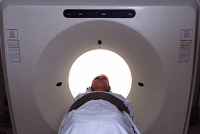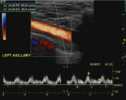The landscape of Medicare payment policy will be changing over the coming years as a result of actions taken in 2014 through the Medicare Physician Fee Schedule (MPFS) and the Protecting Access to Medicare Act (PAMA). The MPFS for 2015 contained fewer changes to current payment policy than it did proposals deferred for future consideration. The Protecting Access to Medicare Act of 2014 (PAMA) was initiated to avoid the significant Medicare payment reduction imposed by the Sustainable Growth Rate (SGR) provision in the Medicare law, but it also contained other provisions affecting payment under the Medicare program.
Assessing the Future Impact of Medicare Regulations on Radiology and Radiation Oncology on March 6, 2015
Categories: radiology reimbursement, radiation oncology reimbursement, MPFS, PAMA
What Radiologists Need to Know Before Billing for Lung Cancer Screening Using Low-Dose CT on March 4, 2015
The Centers for Medicare and Medicaid Services (CMS) announced that Medicare coverage for lung cancer screening using low-dose CT (LDCT) scans would become effective as of February 5, 2015. However, according to the American College of Radiology (ACR), we are likely a few months away from publication of the details needed before radiology practices can begin submitting claims to Medicare for these scans. They recommend that “physicians meeting the coverage criteria should hold all claims for low-dose CT lung cancer screening until further reimbursement instructions are released by CMS.” The article “College Addresses Lung Cancer Screening Questions” appeared in the February 13th edition of the ACR’s Advocacy in Action eNews.
Categories: radiology reimbursement, medicare reimbursement, low dose CT
Duplex Doppler Ultrasound Tips to Help Maximize Radiology Reimbursements on February 26, 2015
Good documentation is the key to optimal coding and reimbursement for radiology procedures. By including all of the essential elements in the radiology report, physicians give their coders all of the information they need to get the billing done most efficiently. But when the report lacks some required piece of data, the coders must contact the radiologist for clarification. At best, this slows down the billing process but, at worst, it leads to under-coding and therefore lower payment than is possible for the procedure.
Categories: radiology reimbursement, radiology documentation
An Overview of the Medicare Quality Reporting Provisions Affecting Radiology Practice Reimbursements on February 24, 2015
The stage is set for a new era of Medicare payment modification using data self-reported by physicians that measures the quality of their work. The two programs already in place are the Physician Quality Reporting System (PQRS) and the Value-Based Payment Modifier (VM). These two will work in concert to determine either a positive, neutral or negative payment adjustment to the basic Medicare fee schedule, generally two years following the reporting year. Note that the rewards and penalties for these programs are cumulative; failure to meet the PQRS reporting requirements will invoke a penalty under both the PQRS and the VM programs.
Categories: radiology reimbursement, value modifier, PQRS
How Coding Changes Impact Radiation Oncology Practices in 2015 on February 12, 2015
The stage is set for an interesting year of coding, billing and reimbursement in radiation oncology. The CPT1 coding structure for radiation oncology services underwent significant revision in order to bundle certain services that are usually reported together and to clarify the meaning of some codes in the context of current clinical practice. In some cases this required the creation of new CPT codes to describe these services, or revision of the descriptions of existing codes in other cases. Medicare’s decision not to fully recognize these coding changes creates the potential for two different systems to be in place for 2015, and is sure to cause discrepancies between billing for Medicare and billing for other payers.
Categories: radiation oncology reimbursement, medicare reimbursement, radiation oncology coding
Radiology Practices: Don't Leave Medicare Money on the Table! on February 5, 2015
Medicare will pay physicians a lump sum bonus equal to 0.5% of their 2014 Medicare reimbursement in exchange for successfully reporting data under the Physician Quality Reporting System (PQRS). The PQRS program has been in place since 2007, but reporting for 2014 is the final opportunity to earn an incentive payment. Failure to report PQRS data in 2014 will result in a 2.0% PQRS penalty through reduction of Medicare physician fee schedule payments in 2016, plus a possible additional 2.0% penalty under the new Value-based Modifier program.
Hidden Reductions in the Medicare 2015 Physician Fee Schedule on January 2, 2015
According to the American College of Radiology (ACR), “The technical component for more than 200 imaging procedures will be cut by up to 55 percent in the final 2015 Medicare Physician Fee Schedule (MPFS) because of a decision to remove the direct practice expense of numerous film inputs that affected their reimbursement rates in favor of the cost of acquiring a desktop computer.” The decreased reimbursement is sizable for such procedures as myelography, CTA and a variety of ultrasound studies. The ACR’s analysis was released in their recent eNews article Analog to Digital Conversion to Cost Radiologists. The article includes helpful impact tables showing the specific change in radiology reimbursement rates between 2014 and 2015 for each CPT code.
The changes cited by the ACR are the result of Medicare’s attempt to recognize that most practices today use digital PACS technology rather than film. They removed the costs associated with film production and storage, but replaced those costs with only the value of $2,501 to represent a typical radiology reading station. No recognition was given to the overall cost of installing and maintaining the central PACS hardware and software. The ACR reports that, as an example, CPT 76377 (3D Post-processing of tomographic modality) receives a 45.7% reduction for film-based costs offset by a gain of only 1.7% when the desktop computer is substituted.
Categories: radiology reimbursement, radiology coding, medicare reimbursement, MPFS
The Impact of Coding Changes on Radiology Practices in 2015 on December 23, 2014
Radiologists concerned with maximizing practice revenue in 2015 would do well to understand the nuances of new coding changes that can impact reimbursements. The majority of coding changes for 2015 involve either bundling two codes into one when those codes are most often reported in combination or the creation of new codes to clarify their usage. The resulting impact on an individual practice’s overall payment levels should be minimal but will depend on its actual procedure mix. One major item of note is that Medicare will begin to provide reimbursement for Digital Breast Tomosynthesis (DBT, sometimes referred to as 3D Mammography) beginning in 2015 in the form of a code to be added-on to digital screening and diagnostic mammography services, although reimbursement from commercial payers is not guaranteed.
Categories: radiology reimbursement, radiology coding
What Radiation Oncology Practices Need to Know About the 2015 MPFS Rule on December 5, 2014
 The Medicare Physician Fee Schedule (MPFS) for 2015 sets the allowed fees for radiation therapy centers at a 1% increase, while radiation oncology professional services will remain unchanged. The Centers for Medicare and Medicaid Services (CMS) had originally proposed drastic cuts in both the professional and technical components but instead elected to defer any decision on assumptions related to major practice expense categories while additional data is gathered.
The Medicare Physician Fee Schedule (MPFS) for 2015 sets the allowed fees for radiation therapy centers at a 1% increase, while radiation oncology professional services will remain unchanged. The Centers for Medicare and Medicaid Services (CMS) had originally proposed drastic cuts in both the professional and technical components but instead elected to defer any decision on assumptions related to major practice expense categories while additional data is gathered.
Categories: radiation oncology coding, MPFS
How the MPFS Rule for 2015 Will Impact Radiology Practices on December 3, 2014
Medicare’s Physician Fee Schedule (MPFS) for 2015 contains relatively few changes that will impact payments to radiology practices next year. By revising some of the assumptions that go into the setting of the Relative Value Units (RVU), the allowed fees for diagnostic radiology professional services will decrease by 1% and imaging centers will see a 2% reduction, while interventional radiology and nuclear medicine services will remain unchanged.












